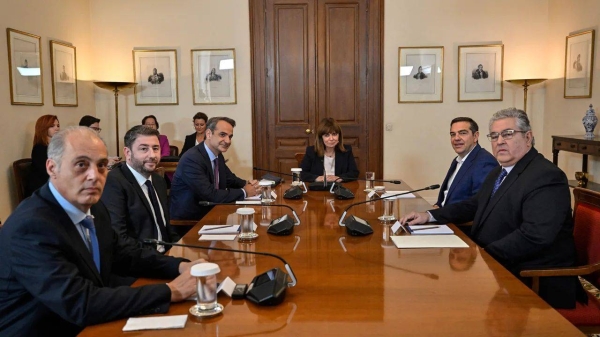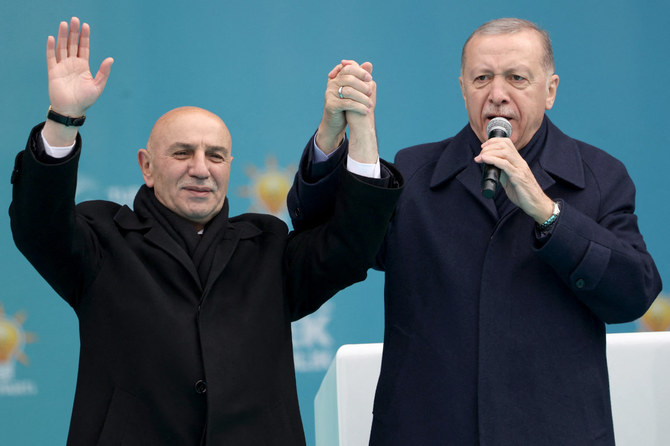
Italy"s president appoints a former IMF official as interim prime minister with the task of planning for snap polls and passing the next budget.
The decision to appoint Carlo Cottarelli to form a stopgap administration sets the stage for elections that are likely to be fought over Italy"s role in the European Union and the euro zone
ROMA: Italy’s president on Monday named a former IMF economist as caretaker prime minister to lead the country into new elections, possibly as soon as the autumn, after a political storm whipped up by the collapse of a populist bid for government.
The eurozone’s third largest economy had lurched into a fresh crisis when President Sergio Mattarella on Sunday vetoed the nomination of fierce euroskeptic Paolo Savona as economy minister in a planned coalition of the far-right League party and anti-establishment Five Star Movement.
His rejection of Savona and nomination of Carlo Cottarelli as caretaker prime minister sparked angry calls for his impeachment as Savona had the backing of the majority of lawmakers.
“This isn’t democracy, this isn’t respect for the popular vote. It’s the latest slap in the face from the powers-that-be that says Italy should be a slave, scared and precarious,” League leader Matteo Salvini charged.
The chaos — the latest chapter in a drawn-out political saga after an inconclusive March election — sent Italian stocks tumbling by as much as two percent at one stage, and bond yields surging, with Italy’s debt risk premium hitting its highest level since November 2013.
Cottarelli, 64, was director of the IMF’s fiscal affairs department from 2008 to 2013 and became known as “Mr Scissors” for making cuts to public spending in Italy.
He said that should his technocrat government win parliamentary approval, it would stay in place until elections at the “start of 2019.”
But if parliament fails to approve his government, a new election would be held “after August” — the most likely outcome given only the center-left Democratic party has announced that it would vote in favor.
Salvini and Five Star leader Luigi Di Maio furiously denounced the presidential veto, blasting what they called meddling by Germany, debt ratings agencies and financial lobbies.
The League and the Five Star — who together have a parliamentary majority — abandoned their plans to form a coalition government after the president’s veto led to their approved nominee for prime minister, lawyer and political novice Giuseppe Conte, stepping aside.
Di Maio denounced the replacement of “a government with a majority with one that won’t obtain one” and called for the president to be impeached.
“I hope that we can give the floor to Italians as soon as possible, but first we need to clear things up. First the impeachment of Mattarella... then to the polls.”
Salvini, a fellow euroskeptic who was Savona’s biggest advocate, said the anti-establishment government failed because the “powers-that-be, the markets, Berlin and Paris” had decided against “some of our ministers.”
According to the Italian constitution, the president nominates both the prime minister and, following proposals from the premier, the cabinet.
The most famous example of a president denying a choice of PM came in 1994 when Eugenio Scalfari refused then prime minister Silvio Berlusconi’s choice of his own lawyer — Cesare Previti — as justice minister.
On Sunday, Berlusconi showed support for Mattarella’s “safeguarding the interests of Italian families and businesses,” which led his pre-election ally Salvini to threaten to break their alliance if the billionaire media mogul voted in favor of the caretaker government.
But Giorgio Mule, parliamentary spokesman for Berlusconi’s Forza Italia party, which won 37 percent of the vote in March alongside the League and two smaller far-right parties, said Monday it would not approve Cottarelli’s team.
“let’s give the floor back to the Italians,” Mule said.
Former constitutional court judge Mattarella said he had accepted every proposed minister except Savona, who has called the euro a “German cage” and has said that Italy needs a plan to leave the single currency “if necessary.”
The 76-year-old said he had done “everything possible” to aid the formation of a government, but that an openly euroskeptic economy minister ran against the parties’ joint promise to simply “change Europe for the better from an Italian point of view.”
In France, far-right leader Marine Le Pen joined in the outrage of the Italian populists, accusing the president of a “coup d’etat” and saying the “European Union and financial markets are again confiscating democracy.”
But French President Emmanuel Macron backed Mattarella, saying he saying he was fulfilling his role as the guarantor of the country’s institutions with “courage and responsibility.”
Germany was more cautious, with Chancellor Angela Merkel’s spokesman saying: “Respect for Italian democracy and democratic institutions requires us to wait and see which government will lead the country and which ideas it will present to its EU partners.”












